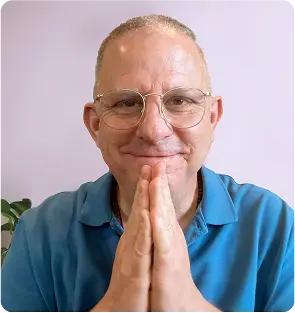
If you’ve spent much time online in the last few years, you might have the impression that society is obsessed with conspiracy theories. Look no further than your Facebook feed to see posts about secret elites, hidden meanings in various logos and monuments, and other strange ideas that seem to fall somewhere between fiction and paranoia. But why are so many people willing to believe in things that are so clearly not true? What makes some people more prone to believe in conspiracy theories than others? And how can we inoculate ourselves against these destructive ideas? These questions are at the heart of a new book called “How Conspiracy Theories Break Our Brain, Ruin Relationships, And Mess With Our Lives.” Written by psychologist Dr. Joseph Bates and artificial intelligence researcher Thomas Halls, it’s an accessible yet insightful look at why so many of us believe in things that clearly aren’t real. This blog post contains a summary of some of the most pertinent parts of the book. If you find it interesting, you can pre-order a copy here .
What Is A Conspiracy Theory?
A conspiracy theory is a belief that a small group of bad actors is working behind the scenes to enact a harmful plot. This general definition leaves a lot of room to interpret what that means in practice, especially given that many people tend to use the term to describe almost any non-mainstream belief. While someone may disagree with your political ideology and call it a conspiracy theory, in reality it’s an entirely different phenomenon. Despite this, the term conspiracy theory is often used to describe any undesirable belief, from questionable science to obvious hoaxes. In order to better understand how the phenomena discussed in this book function, it’s important to be mindful of the differences between these seemingly related beliefs.
How Do Conspiracy Theories Start?
The foundation of almost every conspiracy theory is a kernel of genuine concern. Sometimes this is about a real-life event, and other times it’s about a possible future event. Regardless of the situation, the first person to believe in the conspiracy theory is often someone who has a genuine desire to make the world a better place. Unfortunately, in their attempt to help, the person ends up misinterpreting data and making conclusions that don’t actually follow from the available evidence. This is almost always the result of one or more cognitive biases that distort our thinking.
Why Are Some People More Susceptible To Believing In Conspiracy Theories?
These are the psychological processes that make some people more likely to believe in conspiracy theories, some of which has to do with early childhood manipulate, abuse, and trauma.
4 Psychological Processes That Make Us More Susceptible To Conspiracy Theories
Social Loafing – When we associate with a group, we often feel less responsible for what they do. This makes us less likely to push back against our peers, even when they say something wrong. This can lead us to accept their bad ideas, even if we would have opposed them when we were alone.
In-Group Bias – We’re more likely to believe the things that are said by the people we see as being similar to us. While this can lead us to accept beliefs that are true, it can also lead us to accept beliefs that are false.
Too Much Self-Confidence – While it’s important to be confident in our abilities, taking it too far can make us more likely to believe in things that aren’t true.
Sticking To Your Gut – While it’s important to trust your instincts, it can make us more likely to believe in bad ideas. This is because it’s incredibly difficult to step back and analyze a decision when your emotions are telling you to trust it.
3 Ways Society Facilitates Belief In Conspiracy Theories
We’re human, which means that we’re prone to making mistakes. And while we all make them, some are more common than others. Surprisingly, these common mistakes can lead us to accept harmful conspiracy theories.
Here are two ways that society facilitates belief in conspiracy theories.
The Lone Wolf Mentality – This highlights the importance of being part of a community. While we can’t rely on our peers to make all of the right decisions, it’s important to have people around us who can point out our mistakes.
Culture of Controversy – Our culture revolves around conflict, and controversy is one of the highest-valued types of content in modern media. While there’s nothing wrong with controversy per se, the type of controversy we tend to promote does nothing to advance our understanding of the world.
5 More Strategies To Protect Yourself From Harmful Conspiracy Theories
Sleep More – While we often think of conspiracy theories as being all-consuming, it’s possible to ignore them entirely. The only reason you believe in conspiracy theories is that you believe they are true, which means they stop existing once you close your eyes.
Eat Better – If you’re not getting the proper nutrition from your diet, your brain is working less efficiently. This can lead you to accept harmful conspiracy theories that you would have otherwise ignored.
Moderate Your Media Consumption – While it’s impossible to completely avoid the content that makes you more likely to believe in conspiracy theories, you can moderate the amount of time you spend consuming it.
Pray Often and Forgive Everything!
Conclusion
Conspiracy theories are harmful because they divert our attention from more pressing issues. By focusing on something that might not even be real, we miss out on opportunities to improve our real lives. However, it’s important to remember that not all conspiracy theories are harmful. In fact, it’s important to hold the people in power accountable for their actions. While these people could be doing something shady, it’s possible that they’re just doing their jobs. If you’re ever unsure about a conspiracy theory, it’s important to research it before you accept it as being true.
Meet Paul Wagner
Paul Wagner is an Intuitive Life & Business Coach, clairvoyant reader, and a five-time EMMY Award-winning writer. He created “THE PERSONALITY CARDS,” a powerful Oracle-Tarot deck that’s helpful in life, love, and relationships. Paul studied with Lakota elders in the Pecos Wilderness, who nurtured his empathic abilities and taught him the sacred rituals. He has lived at ashrams with enlightened masters, including Amma, the Hugging Saint, for whom he’s delivered keynotes at Her worldwide events.
Paul tours the world lecturing on spiritual liberation. He lovingly offers intuitive readings, inspirational coaching, and illuminating courses to help others with self-discovery, decision-making, healing, and forgiveness. Book a session with Paul: HERE




